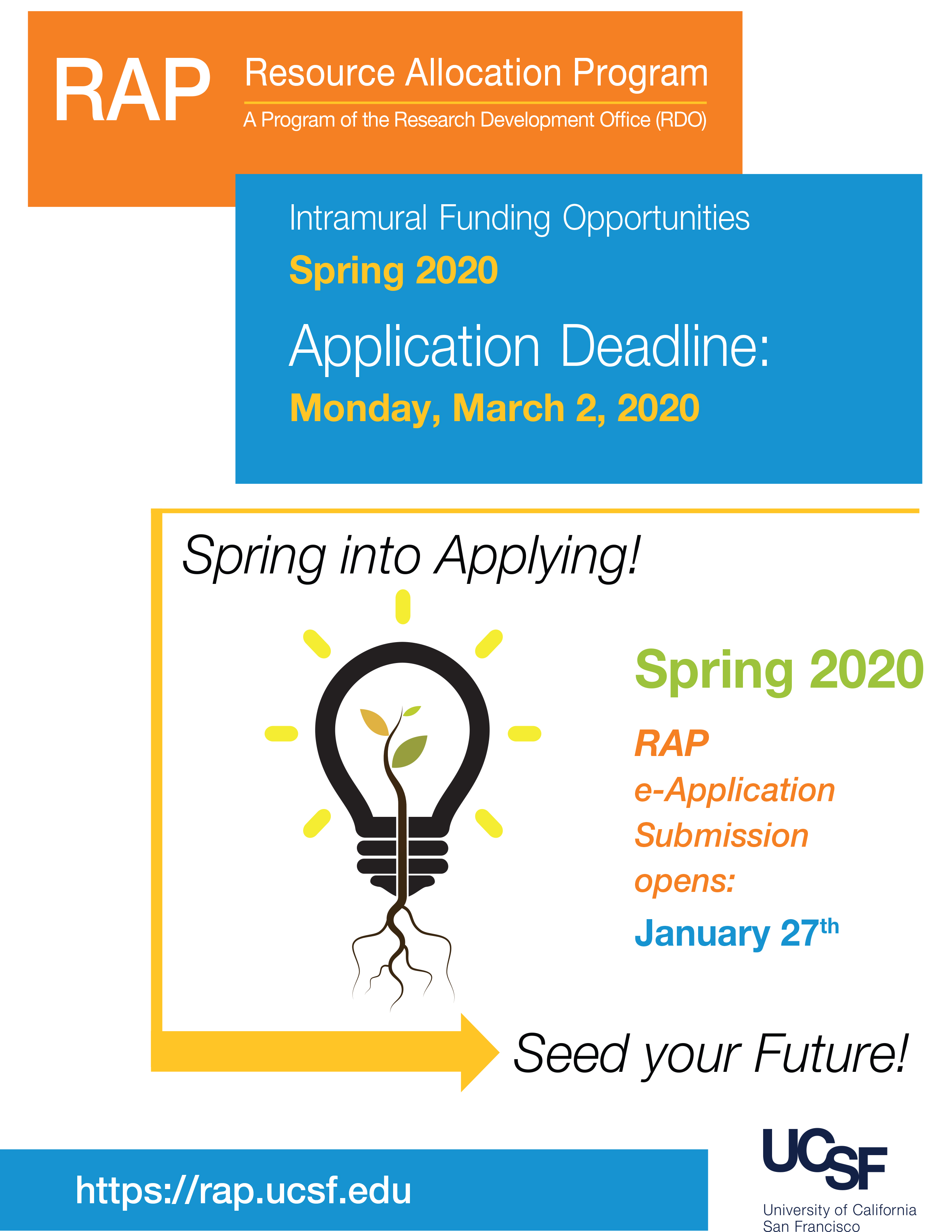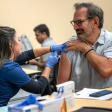The Clinical and Translational Science Institute will offer the following funding opportunities for this Spring 2020 RAP cycle (Resource Allocation Program). Questions? Contact Abby Sidibe: [email protected]. Applications due March 2, 2020.
Pilot Award for Prevention and Treatment of Opioid Use Disorders
Project Award Amount $40,000
Description
This funding opportunity is intended to support projects focused on pursuing the research on prevention and treatment of opioid use disorders. We are particularly interested in projects that will generate preliminary data needed to develop clinical trials or population-based community interventions. Projects should relevant to these broad areas related to opioids: pain management, standard of care and opioid prescribing patterns; improving prevention or treatment of opioid misuse and addiction; and the intersection of pain and addiction.
Applications in any aspect of clinical research will be considered. Examples include:
- Implementation strategies for evidence-based approaches in multiple settings including primary and emergency care, the criminal justice system, and other community settings, and in communities highly affected by the opioid crisis;
- Populations that may be at-risk which include older adolescents and young adults (ages 16-30) which is a group at highest risk for opioid initiation, misuse, OUD and overdose fatality; individuals born with Neonatal Abstinence Syndrome (NAS)/Neonatal Opioid Withdrawal Syndrome (NOWS); homeless populations; and those with co-occurring health conditions including other substance-abuse disorders, mood and anxiety disorders;
- Evidence-based approaches that can be integrated or embedded into health care systems;
- Pharmacokinetics and pharmacodynamics of opioids as they relate to reward pathways and addiction. Learn more
Family Support Award
Project Award Amount $40,000
Description
During the development of a research career, junior faculty need to focus intensively on their research for a critical period of time. Due to the demands of family care, faculty may struggle to keep up with an ambitious research agenda especially during and immediately after periods of more intense family caregiving. The funding will fill a gap in support for junior faculty with significant family caregiving responsibilities by providing funding for supplemental research support. Eligible faculty (see below) will complete a structured application describing the need for additional support, the value and goals of the research to be pursued, and how the funding will extend the current research program. The proposed research must be clearly justified as being on the path to potential use in humans.
CTSI-Pilot Awards/Doris Duke Charitable Foundation (DDCF) funding also included access to resources and mentorship as part of the Fund to Retain Clinician-Scientists. Learn more
Pilot for Junior Investigators in Basic and Clinical/Translational Sciences
Project Award Amount: $40,000
Description
These pilot projects are intended to support a wide range of biomedical research, including fundamental basic science, clinical/translational science, health policy and social science, digital health (incorporating the use of mobile technology) and population science.
Pilot projects are for one year and not renewable. (Some funding agencies allow for no-cost extensions. This will be clarified in the Award Letter.) All funding agencies require progress reports if an award is received. The number and timing of those reports varies between the agencies. Detailed information about this will appear in the respective funding agencies Award Letter. Learn more
Under-Represented Faculty & Senior Fellows in Clinical and Translational Research Awards
Project Award Amount $40,000
CTSI Pilot Awards is the sole sponsor in Spring Cycles and Faculty & Fellows can apply in spring
Description
This grant mechanism provides support for senior fellows, instructors, assistant, associate and full professor faculty from historically disenfranchised racial and ethnic groups that are under-represented in health sciences, or from economically disadvantaged backgrounds. The goal is to encourage fellows and faculty from these groups to remain in academia as career professionals and thus to increase the diversity of our faculty.
Research can be any area relevant to clinical and translational research which includes bench-to-bedside/laboratory-to-human (T1) translational research, clinical research and bedside-to-community/evidence-to-practice (T2/T3) research. Social, behavioral and economic research as it affects health is included. If not directly involving the study of people or populations, the proposed research must be clearly justified as being on the path to potential use in humans. Learn more





